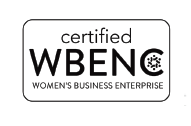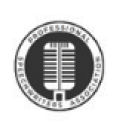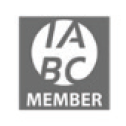7 bad habits to break if you want to become a better speaker
 In-person events are back!
In-person events are back!
Unfortunately, so are some of the bad habits speakers fall into when they fail to prepare well for public speaking.
If you want to become a better speaker, check yourself against these seven bad habits.
Which ones do you need to break?
If you’re like most people these days, your calendar is filling up fast with in-person events and conferences again.
People are heading back to lecterns, podiums and stages everywhere for the chance to speak face to face with colleagues, partners and prospects.
 It is indeed a joyful time!
It is indeed a joyful time!
After 24 months, people are eager to connect and reconnect – to see people they knew only as Zoom squares suddenly be transformed in 3D.
But when it comes to public speaking, many folks are rusty.
They’ve fallen into bad habits – so their audiences are suffering.
Over the past two months, I’ve attended eight business meetings and events back in person.
Time and again – with just one stellar speaker as the only exception – I’ve witnessed these seven bad habits from public speakers.
 Bad Habit #1: Pretending to know your audience
Bad Habit #1: Pretending to know your audience
An out-of-town speaker whose business was entering a new local market made reference in his speech to the names of a few local organizations and venues.
To his credit, he was trying to connect.
He was trying to assure the audience that he was one of us.
But when he mispronounced a couple of well-known local names?
He gave himself away.
Instead of connecting, he put a barrier between himself and his audience, which immediately damaged his likeability and credibility – crucial for winning an audience over.
If you want to become a better speaker, don’t pretend to know your audience. Do the work required to ensure you get all the details right.
Bad Habit #2: Digging yourself into a hole
Whenever I coach public speakers, I often have to tell them to stop apologizing because what they say often causes them to lose points with their audience.
They dig themselves into a hole that’s hard to get out of. So they put themselves into an unfavorable position with their audience.
 For example, at events over the past several weeks, I’ve heard speakers dig themselves into a hole by saying these things :
For example, at events over the past several weeks, I’ve heard speakers dig themselves into a hole by saying these things :
- “I tend to be long-winded, so I apologize if I take up more of the time allotted today.” (Audience thinks: This speaker is going to drone on for a while.)
- “I’m sorry, but I left here without my notes, so bear with me.” (Audience thinks: This speaker is disorganized.)
- “Unfortunately, I made some changes at the last minute, and my assistant didn’t get the handouts done for you.” (Audience thinks: This speaker is not prepared.)
- “So one last thing, and then we will wrap up because I know we are taking your time …” (Audience thinks: Wait – this speaker is wasting my valuable time?)
Speakers also dig themselves into a hole when they open their presentation with this (awful) question: “Hello and good morning! Can you hear me? Can everyone hear me OK?” (Audience thinks: This speaker hasn’t even tested the audio.)
If you want to become a better speaker, don’t say things that cause you to lose favor with your audience. If you make statements like the statements above, you’ll have a much harder time accomplishing your primary reason for speaking: getting your audience to change their thinking or behavior based on the message you are delivering.
Bad Habit #3: Promising that you’ll try to “get through all the slides”
To people sitting in the audience, this statement coming from a speaker sounds like a chore.
A punishment!
A sentence for committing a crime.
 But that’s exactly what a CEO from a big public company said before he started his remarks: “I’ll do my best to get through all the slides.”
But that’s exactly what a CEO from a big public company said before he started his remarks: “I’ll do my best to get through all the slides.”
(Like that’s a good thing?)
Instead of taking charge, this speaker gave his power to his slides.
To him, those slides he was given were the driver!
But the real question is this: What is your intention with this presentation? What is the message you want to convey?
In truth – that’s what matters!
Not a goal of “getting through all the slides.”
If you want to become a better speaker, get your slides out of the driver’s seat.
Put them in the back seat.
- YOU decide what your audience wants and needs from you.
- YOU decide what you want the outcomes to be from your speech.
- YOU decide what the key message needs to be.
Bad Habit #4: Showing slides with tiny words (that no one can possibly read) and complicated charts (that no one can possibly interpret)
 A speaker with obviously a slick graphics team started his presentation – as many speakers do – with slides.
A speaker with obviously a slick graphics team started his presentation – as many speakers do – with slides.
But instead of using bold visuals to complement the words he was speaking, he projected the following on the screen:
- A company timeline (no text was readable)
- A series of word slides (with bullets galore)
- Cut-and-pasted charts from a white paper (void of any conclusions)
(Why? Why? Why?)
When things like this happen, the audience is instantly frustrated.
People turn away!
Without question, it takes more time to actually think through how each slide ought to deliberately complement the words being spoken. But when a speaker skips this part of the thought process – and puts all control of the slides into someone else’s hands – the end result is often far from desirable.
If you want to become a better speaker, take ownership of your slides. Be a part of the planning process. Don’t accept off-the-shelf elements suitable for a white paper but damaging when cut and pasted into a presentation. Instead, insist on bold visuals – and only a handful of words, if any – on every slide.
Bad Habit #5: Forgetting pathos
 “He’s a great public speaker!” a colleague said to me recently about a fellow co-worker on the speaking circuit. “He always has really great slides with a ton of great data. Very impressive.”
“He’s a great public speaker!” a colleague said to me recently about a fellow co-worker on the speaking circuit. “He always has really great slides with a ton of great data. Very impressive.”
“OK,” I replied, with just a tad bit of caution. “What did you like about what he shared?”
My colleague answered quickly.
“I really don’t remember what he said,” my colleague admitted (much to his own surprise). “But you could tell that he had collected so much great information.”
I went on to explain to my colleague why he remembered nothing about his co-worker’s presentation:
Without pathos – emotion evoked – a likeable speaker who presents logical data will still miss the mark every time.
If you want to become a better speaker, don’t forget the pathos. Your best facts and figures are worthless – forgettable! – unless you intentionally figure out a way to evoke one or more emotions in the hearts of your audience (no matter the topic!), often through storytelling.
Bad Habit #6: Telling an entertaining story (but then skipping the point)
 The moment he began, I knew the keynote speaker was going to be entertaining.
The moment he began, I knew the keynote speaker was going to be entertaining.
He was a fast talker, and yet, had all the skills of a good storyteller:
- He was personable, colorful, detail-oriented and conversational.
- Plus, he was blending a personal experience with pop culture, famous people and familiar places.
In the beginning, the audience was riveted by his storytelling! I looked around and saw that he was connecting with the crowd. People in the audience were smiling, nodding, listening attentively.
And then?
Things went downhill fast.
He must have realized he was running out of time because suddenly, the story he was telling went all over the place. Kind of like a pinball in a pinball machine.
He was hard to follow, and it took more energy for us to focus on what he was saying and make sense of it all in our head.
After 21 minutes, he must have gotten the high sign from the back that it was time to wrap up. But he wasn’t done.
So he ramped up the speed since he knew he was running out of time.
“It’s going to be clear in a second!” he told us.
And still he kept going.
“OK – let me tie this all together!” he told us.
And then he didn’t.
Because just like that, his story was over. He attempted to connect all the dots and at last make his point.
But he was in such a rush, what he said made little sense!
The audience was clearly confused.
He ended by spouting a laundry list of key points that he obviously thought he should make. Then he said thank you – and exited the stage.
Meanwhile, my own head was spinning. I felt lost. Irritated. A bit cheated.
What was his point?
If you want to become a better speaker, don’t spend 22 minutes telling a story that subsequently fails to make a point. Your audience will not forgive you for stealing their time for no reason. Think carefully how you will punctuate your remarks. What will you say, and how will you say it, to be sure your audience gets it?
Bad Habit #7: Padding your message
 Remember those 1,000-word essays you wrote in high school about Shakespeare’s “Romeo and Juliet” or the causes of World War II?
Remember those 1,000-word essays you wrote in high school about Shakespeare’s “Romeo and Juliet” or the causes of World War II?
If you didn’t much care for the topic or ran out of things to say, you probably padded your sentences and paragraphs with extra words here and there to get to that 1,000-word limit.
Recently, I heard a keynote speaker take 24 minutes to deliver a talk that easily could have been done in half the time.
She knew her main points and had a few examples. But she didn’t have much to say beyond that.
This speaker had two choices:
- Add more content to keep us engaged
- Shorten her presentation
Instead, she chose to say many of the same things over and over – just in different words.
I found my mind wandering as she rambled on, making and remaking the same points again and again.
If you want to become a better speaker, prepare the right amount of content for the right amount of time. If you go in with a handful of headlines and plan to wing the rest to fill your allotted time, you risk padding your remarks with fluff and repetition (and boring your audience). Always test what you have to share by timing your remarks. Then add or subtract accordingly.
Which of these seven bad habits do you need to break?
Now that in-person events are back, it’s time to pick ourselves up, dust ourselves off and get back in the saddle again.
 That means:
That means:
- Being aware of any bad habits
- Fixing all of them
- Staying alert and on guard (so you don’t fall back later into those same bad habits)
If you want to become a better speaker, check yourself now.
Do you ever:
- Pretend to know your audience?
- Dig yourself into a hole?
- Promise that you’ll try to “get through all the slides”?
- Show slides with tiny words (that no one can possibly read) and complicated charts (that no one can possibly interpret)?
- Forget pathos?
- Tell an entertaining story (but then skip the point)?
- Pad your message?
Which of these seven bad habits do you need to break?
Do you have a speech coming up and want to work with a speechwriter to get the best possible results?
Don’t wait any longer.
Request a 15-minute discovery call now with Teresa Zumwald, an award-winning speechwriter and speech coach, and get your questions answered.

















